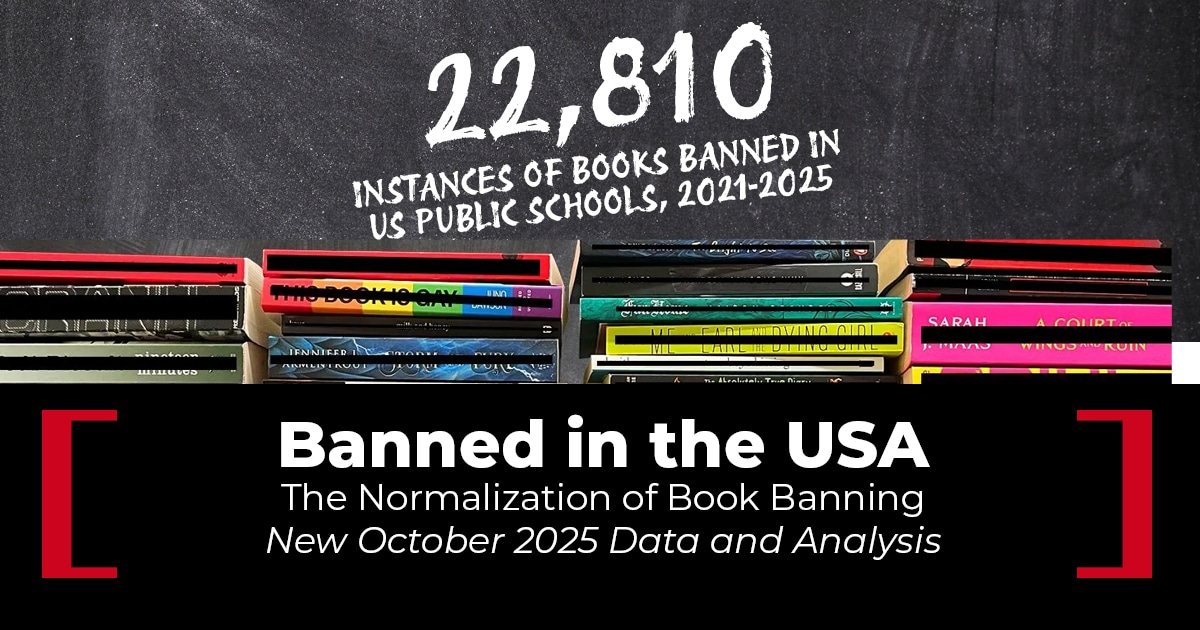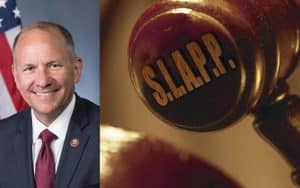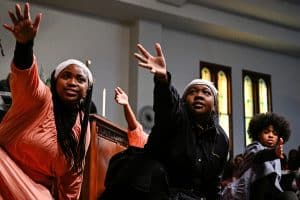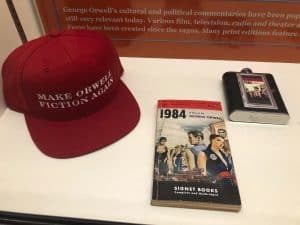In the spring of 2025, one of the most shocking facts about American public education is not that book banning exists—but that it has become both expected and “normalized.” According to PEN America’s October 2025 report, The Normalization of Book Banning, more than 22,810 instances of book bans have been recorded since 2021. The removal of books is no longer an anomaly; it is fast becoming part of public education’s institutional landscape.
This shift is more than alarming, it is a threat to the core of public education and free expression.
The transformation is systematic, multi-layered, and chilling in its implications. Once a book is removed, it seems very slow to return, even if its removal was under questionable circumstances. For instance, here in Central Bucks School District, two books were removed. They were Gender Queer and This Book is Gay.
READ: It Takes a Village: Expelling Right-Wing Extremism from Bucks County School Districts
The fact that they were removed is less of a problem than the way they were removed. Although there was a committee formed and a process for review, the process was not completely transparent. Five books were quickly reviewed, two were removed, and about another 60 may have just sat on the challenge list. In December 2023 I wrote about the new school board suspending the old library policy and wondered if those two books would be reshelved. But, as of this date, it seems that they have not been returned to the shelves, and that the fate of the other challenged titles is still unclear – even though the library policy and challenge procedures have been revised.
The scale is big

Over the four school years from 2021–22 to 2024–25, PEN America’s tracking reveals dramatic escalation in bans. In 2023–24 alone, more than 10,000 banned-book instances were logged; and in 2024–25, PEN recorded 6,870 new bans across 23 states and 87 school districts. These numbers understate the real impact, because many bans simply persist from prior years and thus go uncounted in annual tallies.
Some states are now elevating bans from local decisions to statewide mandates. For instance, Utah and South Carolina have created “no read” lists that automatically ban specific titles across all public schools. The move from ad hoc censorship to structural control is underway.
From local pressure to federal echoes
What began as pressure on local school boards and district administrators has now rippled upward. Conservative activist groups like Moms for Liberty have rallied around “parental rights” and “protecting children” as cover for pressuring educators to censor material. They frame ideological preferences as moral imperatives, demanding the removal of stories—especially those with LGBTQ+ themes or honest accounts of racial history.
READ: Banned Books Week: A Local Reflection From a Pennridge School District Dad
More disturbingly, this trend has moved to the federal level. The Trump administration has issued executive orders and directives encouraging the removal of books labeled as promoting “un-American ideas” or “gender ideology.” PEN America reports that in one sweeping action, nearly 600 books were removed from Department of Defense Education Activity (DoDEA) schools. At the same time, the U.S. Department of Education dismissed book bans as a “hoax,” rescinded a position dedicated to investigating discriminatory book removals, and issued a “Dear Colleague” letter warning schools to avoid “race preferences or stereotypes” or risk losing federal funding—even though courts have blocked enforcement.
In June, the U.S. Supreme Court ruled 6–3 in Mahmoud v. Taylor that Montgomery County, Maryland, parents can opt their children out of elementary school lessons conflicting with their religious beliefs, particularly LGBTQ-inclusive storybooks like Uncle Bobby’s Wedding.
The ruling is often described as a victory for “parents’ rights.” But this framing is misleading: it protects the rights of some parents while undermining those of others. In this case, certain parents argued the district violated their First Amendment right to religious freedom by denying opt-outs. They claimed that requiring their children to engage with LGBTQ themes burdened their religious upbringing, citing Wisconsin v. Yoder as precedent. The majority agreed, holding that the school board’s refusal to allow opt-outs substantially interfered with parents’ ability to shape their children’s religious development. Justice Alito wrote that, while same-sex marriage is legally accepted, the books’ message conflicted with the parents’ faith.
The school board, however, argued the books promoted tolerance and inclusion without teaching sexuality or gender identity. They stressed that the curriculum was transparent, adopted through a democratic process, and warned that widespread opt-outs would be unworkable in elementary classrooms.
Justice Sotomayor, in dissent, warned that the majority effectively created a sweeping “right to avoid exposure” to ideas parents dislike—opening the door to chaos in public education and weakening schools’ role in fostering shared civic values.
In short, censorship is no longer just local—it is becoming national policy. And one can’t help but wonder if this is laying the groundwork for expanding the “school choice” movement. Where will opt-outs stop? What if some parents want to exclude their children from the “…god-centered, virtuous education” currently being promoted by parts of the government? If everyone opts out of some version of education, the result will be a fractured system of boutique schools catering to narrow worldviews—deepening division and weakening democracy. Meanwhile, as the public fights among itself, the wealthy and powerful sit back and continue to multiply their influence.
The targets are clear
Which books disappear first? Almost universally, the books that reflect marginalized identities, histories of oppression, and stories of LGBTQ+ lives are first in the crosshairs. Titles with trans or queer protagonists, or those dealing with race, gender, and sexuality, are disproportionately challenged. Even children’s picture books — like And Tango Makes Three or The Family Book — have been labeled “sexually explicit” simply for representing same-sex families. If you haven’t seen these books, please decide for yourself if a story, true by the way, of two male penguins at the Central Park zoo is sexually explicit. Or, Todd Parr’s, The Family Book – a book that only intends to acknowledge and honor all kinds of families – making it possible for as many children as possible to see themselves and their family in a book.
“No book shelf will be left untouched if local and state book bans continue wreaking havoc on the freedom to read in public schools.” – Sabrina Baêta, senior manager of PEN America’s Freedom to Read program
This is not an accident: by erasing certain voices, censorship strips students of the ability to see themselves or others fully. As literary scholar Rudine Sims Bishop put it, when marginalized children fail to find accurate reflections of themselves in the stories they read, they internalize the message that they are devalued.
And it’s not just about what is removed; it’s about the message it sends: certain stories do not belong in the public sphere, that certain topics are too dangerous for youth—even when those topics concern the lives and experiences of young people themselves.
The ripple effect of “preemptive censorship”
Perhaps what is most insidious is how schools and educators now often remove books not because of a formal challenge, but simply out of fear of controversy—or fear of political repercussions. PEN America reports that in 2024–25, 97% of the bans emerged from anticipatory compliance rather than following required reconsideration processes. This self-censorship is a powerful tool of control: the threat of political backlash becomes a deterrent greater than any formal policy.
Moreover, districts are now issuing “do not buy” lists, banning books preemptively, before they ever reach shelves. This means censorship is baked into procurement decisions—books never enter the system in the first place.
Such shifts attenuate accountability. If the choice to ban is hidden upstream, there is little trace, little public debate, and fewer opportunities for pushback.
Collateral damage: educators, authors, democracy
The repercussions of this censorship extend well beyond students. Librarians and educators now spend excessive time managing challenges, juggling public scrutiny, and walking a tightrope of political demands. Some admit they no longer feel safe defending certain books. Others omit books from selections to avoid conflict.
Authors face the “Scarlet Letter” effect: having one of their books banned can become justification to challenge or ban their entire body of work. School visits are canceled; future publishing contracts may be jeopardized; creativity is stifled by fear of backlash. The chilling effect spreads.
At a deeper level, book bans are a gauge — an indicator — of a broader downward spiral of censorship in education. Already, challenges target not only books but textbooks, curricula, book fairs, even the voluntary donation of free speech handbooks. As such, book banning is a canary in the coal mine — a warning that control of knowledge is becoming an object of political power.
What resistance looks like and why we must fight
Yet, the story is not without resistance. In the districts affected, PEN America catalogued public pushback from students, parents, librarians, and grassroots coalitions all demanding the return of banned works. Organizations like the Florida Freedom to Read Project, Freedom to Read coalitions, and state ACLU chapters are rallying statewide efforts.
But the scale of the challenge demands more.
Protecting freedom to read means more than reactive defense; it requires preemptive structural protections. Schools, states, and the federal government should adopt clear, fair, and transparent reconsideration policies. Legislatures must enact “right to read” laws that safeguard students’ access to diverse literature. Advocacy must shift from isolated book battles to defending institutional autonomy and resisting the ideological nationalization of censorship.
ACTION! Report a Book Ban Happening in Your Local Public School or Public Library
“No book shelf will be left untouched if local and state book bans continue wreaking havoc on the freedom to read in public schools,” warns Sabrina Baêta, senior manager of PEN America’s Freedom to Read program. “With the Trump White House now also driving a clear culture of censorship, our core principles of free speech, open inquiry, and access to diverse and inclusive books are severely at risk. Book bans stand in the way of a more just, informed and equitable world. They chill the freedom to read and restrict the rights of students to access information and read freely.”
If we allow the normalization of book banning to continue unchecked, we risk returning to a public education system where ideas are sanitized, histories whitewashed, and the voices of the marginalized silenced.
We must remember that children deserve to see themselves represented in loving and positive ways in texts. They deserve to read boldly, and to learn honestly. In this moment, the choice is stark: “Never before” must become “no more.”
Let us mobilize in defense of the freedom to read and not allow censorship of books to become the norm.







